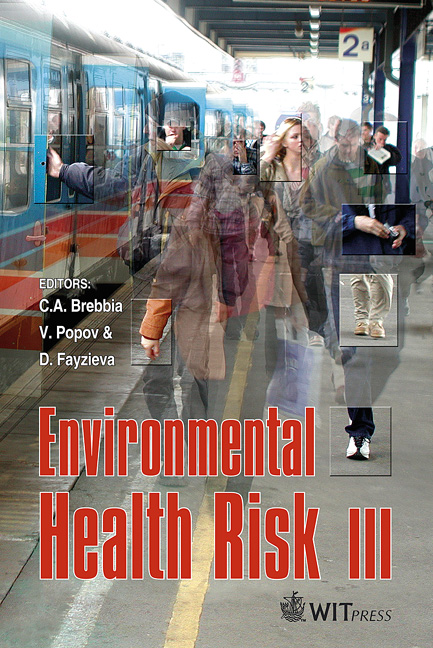Population Exposure To Urban Highway Traffic Emissions
Price
Free (open access)
Transaction
Volume
9
Pages
10
Published
2005
Size
706 kb
Paper DOI
10.2495/EHR050231
Copyright
WIT Press
Author(s)
N. Barros, T. Fontes, C. Brás & L. M. Cunha
Abstract
In this paper is presented firstly the traffic and emission characterization of Via de Cintura Interna (VCI), an urban highway at Oporto city, Portugal, with more than 4 000 vehicles/hour during rush hours. Emission estimates were carried through on the basis of emission factors to road transport published in the Atmospheric Emission Inventory Guidebook. A weighed emission factor has been calculated for nitrogen oxides (NOx) and vehicle class, according to the Portuguese fleet composition (vehicles age, type of engine and average speed). Furthermore, during a three-week period, an outdoor nitrogen dioxide (NO2) monitoring campaign was carried out in a domain around the VCI (100 m for each side), in particular near residential buildings. The results demonstrate that higher NO2 concentrations are seen in the sub-domain with higher circulation of heavy-duty vehicles and where buildings are adjacent to VCI hindering pollutant dispersion. Meteorological conditions, such as wind intensity and direction, temperature and solar radiation were monitorized too. The NO2 concentrations obtained by the monitoring campaign have been used to create scenarios of population exposure to NO2, having taken into account the time-activity patterns of residents. It was verified that higher exposures occur when the population lives in Boavista, in contrast with the favourable scenario that corresponds to life in Prelada and those working in Espinho city. The work and results presented in this paper are a part of the methodology used in the scope of the ImpactAir Project. This project, started in 2003 in Oporto city, has the main objective of evaluating the impact of urban highway (VCI) traffic emissions on air quality and the health of the local population. Keywords: air pollution, traffic, population exposure, health risk.
Keywords
air pollution, traffic, population exposure, health risk.





